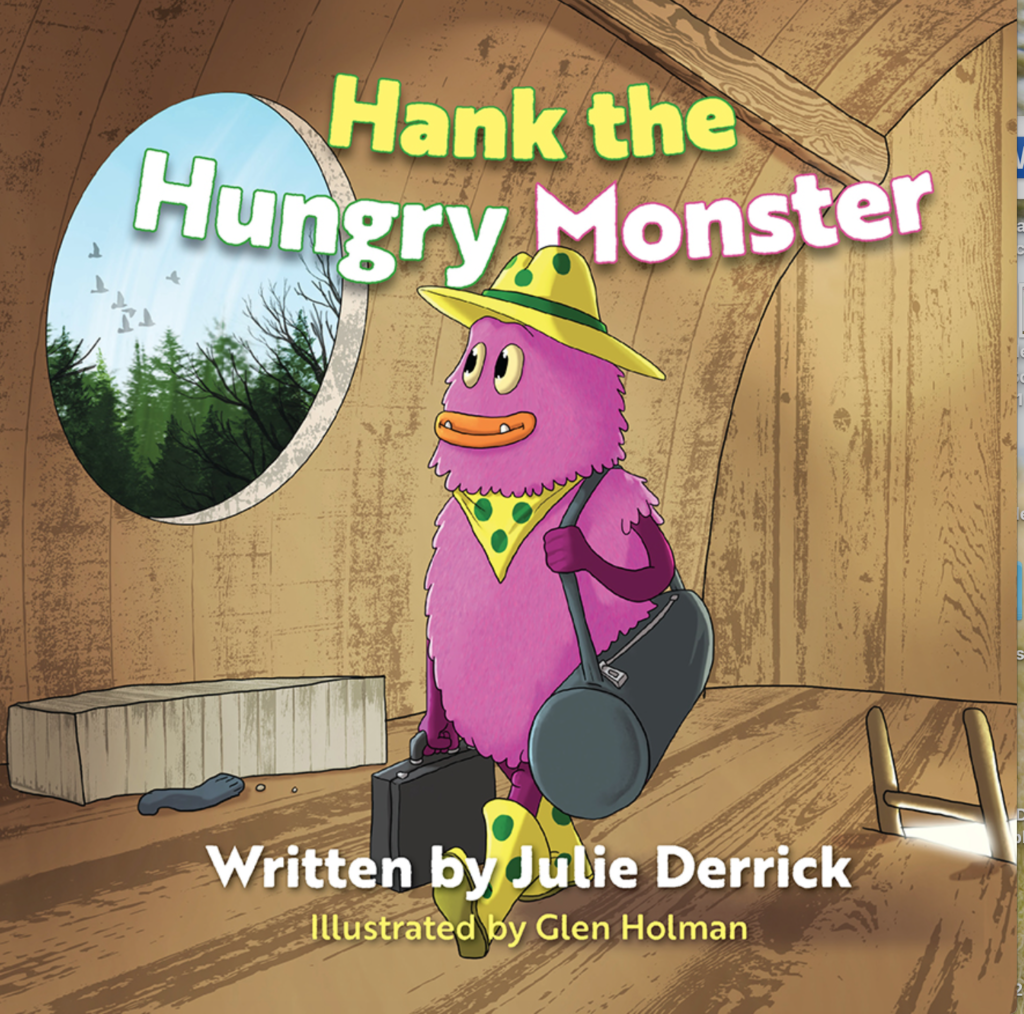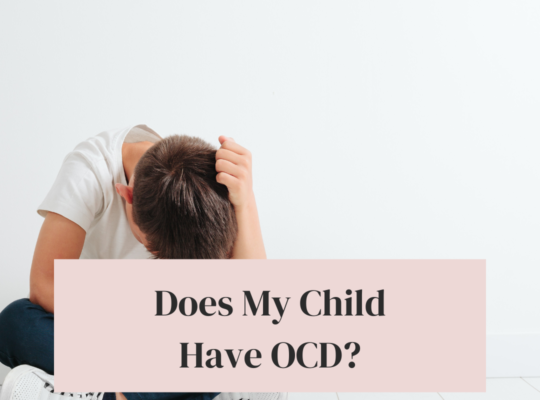
10 Ways I Made Teenage OCD Symptoms Worse
Parenting a teenager with OCD is incredibly tough, especially when you unintentionally feed it and make it a million times worse.
Here are ten ways I made my teenager’s OCD symptoms worse– and how to avoid making the same mistakes.
1. Did I Pass OCD On To My Teen?
I didn’t realise that OCD may be genetic, which meant that I could have unknowingly passed OCD on to my daughter.
Although OCD didn’t control my life, I still struggled with certain behaviours that I likely passed on to her.
One example was when I would ask her to check whether I had switched my straighteners off before leaving the house.
Looking back, I can see how this could have led to her believing that doing compulsions was a way to calm anxious thoughts.
Tip: If you have any symptoms of OCD, be mindful not to recruit your child into your intrusive thoughts and compulsions.
2. I Ignored OCD Behaviours
Looking back, there were a few tell-tale signs that my daughter was displaying signs of OCD behaviours.
Some examples that come to mind are :
- She began sleeping in a hoodie, with the hood up. When I asked her about it, she assured me it was just a phase and that all her friends were doing the same.
- Another red flag was when she started taking cleaning products with her on trips. She explained that they were for a friend who was a “bit of a clean freak” and that she was taking them along to help.
- She began recruiting her friends into her OCD routines, such as getting them to wear hoodies to bed during sleepovers and encouraging them to clean surfaces.
Tip: If you suspect your teenager may be developing OCD, don’t dismiss it as just a teenage phase. Seek help by scheduling an appointment with your GP for an official diagnosis.
3. I Failed To Educate Myself
One of my biggest regrets is that I didn’t take the time to research the best ways to manage OCD behaviours in teenagers.
In hindsight, it seems like the most obvious step, but at the time, OCD caught us off-guard and consumed all of our time.
As a result, I ended up making a lot of mistakes in how I handled the situation, which led to OCD taking full control of the home.
Tip: Make sure to educate yourself about OCD and the most effective ways to manage it in teenagers. If you’re unclear on what OCD really is—especially the disorder aspect—check out a recent TikTok video I made, where I break it down in more detail.
You can view it by clicking the link below:
4. I Reassured A Lot
OCD loves reassurance.
It’s like a hungry monster that never gets satisfied.
The more you feed it, the more it craves.
I learned this the hard way by offering it endless reassurance , which made things a lot worse.
Tip: Avoid giving reassurance. One effective way of doing this is by separating OCD by giving it a name.I call it Hank.By personiifying it, you can create some distance and make it easier to recognise and resist the urge to give in.
I published a children’s book called Hank the Hungry Monster to demonstrate how to effectively do this.
You can check it out by clicking the link below:

5. I Reacted To OCD Meltdowns
OCD meltdowns are awful and can be very difficult to manage.
It’s unbelievable to think how quickly something trivial can turn into a full-blown drama.
And result in everyone trying to out-shout OCD.
But here’s the thing: You will never win an argument with OCD.
OCD thrives on tension and disruption.
I eventually leant a better strategy to use when OCD meltdowns occured.
Here’s what helped me:
- Don’t take it personally. It’s not your child shouting, It’s Hank (OCD) that’s making all the noise.
- Count to ten: When OCD is in full swing , acknowlegde that it’s OCD (not your child), driving the behaviour then count to ten and step paway to give yourself time to calm and not react.
- Calm anxiety: Find ways to calm anxiety . In our case, a drive to the coast with calming music did wonders to reset the mood.
Tip: Separate OCD from your child by giving it a name. When meltdowns happen, remember—it’s not your child shouting, it’s OCD doing the talking. This simple shift in perspective can help you stay calm and focused, while refusing to give OCD the reaction it craves.
6. I Got Recruited To Do OCD Compulsions!
This is when things really spiralled out of control.
When OCD made demands of me, I complied.
I started to:
- Avoid areas of the house.
- Shower after touching ‘contaminated’ things.
- Prevent visitors from coming over.
Looking back it seems crazy, but when your teenager is looking at you terrified that something catastrophic is going to happen if you don’t comply, you’ll be amazed what you will do to try to calm their fears.
Tip: As tempting as it may be, try not to get pulled into doing compulsions. A helpful strategy is to address OCD directly and refuse to comply. For example you could say, “I am not going to listen to Hank today as he is being unreasonable.” By speaking directly to OCD you are taking a stand and reducing it of its power.
7. I Allowed Sibings To Become Recruited
Our OCD nightmare got worse the day it recruited our youngest daugher to carry out compulsons too!
This was incredibly hard for me. I had to sit by and watch as my youngest took on more and more responsibilities, including:
- Shopping
- Cooking
- Avoiding people and places
Tip: Try to avoid other family members from getting pulled in by OCD. If you notice others getting sucked in, begin ERP (exposure and response prevention) therapy with them straight away to help break them free from OCD’s clutches.
8. I Tried To Deal With It Alone
Teenagers with OCD often want to keep their battle private, fearing others won’t understand or think they’re ‘mad.’
This can make things even tougher for parents.
Parenting OCD in teenagers and supporting them through ERP therapy can be incredibly challenging and can take its toll.
What makes it tougher is having to keep it secret and not being able to confide in others for fear of judgement.
While it could be argued that I could have confided in my husband and close family ,when you’re battling OCD, much of your day (and conversation) become consumed by OCD and leaves little time for anything else.
And by the time you get a rare moment of free time, the last thing you want to talk about is OCD
That’s why seeking therapy, whether individual or family counselling, can be incredibly helpful.
Speaking to a third party who isn’t caught up in the situation can provide a fresh perspective and much-needed emotional support.
Tip: If you’re struggling with parenting OCD in a teenager, consider attending therapy. Talking to someone outside the situation can be a powerful way to cope and gain perspective.
Since so many parents contacted me to ask for help and advice on how to handle OCD in teens, I created a digital handbook to share the strategies that helped me while parenting my own child with OCD. You can find more details about the handbook by clicking the link below:
The Parenting OCD in Teens and Tweens Handbook
9. I Talked Too Much About OCD
I have lost count how many times my daughter (and our family) become frustrated because every conversation centred around OCD.
It’s an easy habit to fall into, especially when OCD, an invisible bully, is controlling so much of your life.
But, looking back, I can acknowledge that in many ways ,we were unintentionally feeding OCD by constantly talking about it.
Tip: Try to steer conversations away from OCD by focusing on more engaging and distracting topics. This can help shift the focus and reduce OCD’s power.
10. I Ignored The Trigger
This is a big one for me.
In hindsight, I realise that my lack of understanding OCD led to me missing a major OCD trigger- my daughter being bullied.
When her best friend started being mean to her I put it down to being a phase that woud eventually pass.
But it didn’t.
It only got worse and eventually manifested into full-blown OCD.
I was also unaware of other OCD events that can trigger OCD, including:
- Bereavement
- Divorce
- Changing school
- Moving house
- Genetic factors
Unfortunately, four of these triggers applied to my daughter.
On top of being bullied, she had lost her grandad, changed schools, moved house—and had a parent with OCD tendencies.
Had I known these could trigger OCD, I would have monitored her behaviour more closely and nipped OCD in the bud as soon as she started displaying OCD behaviours.
Tip: If your child is undergoing any major changes, like those listed above, and showing signs of anxiety, it’s imporant to act quickly before it has the opportunity to manifest into something more serious, like OCD.
Parenting OCD in Teenagers- My Digital Handbook
After helping my teenage daughter manage OCD and lead a more fulfilling life, I am now on a mission to try to help teenagers and parents avoid the struggles we faced.
I want tro share what I’ve learnt so far so that others can:
- Spot early signs of OCD in teens
- Manage OCD using positive communication and introducing ERP (exposure response prevention) therapy.
- Get support from schools so your child can still achieve their academic and personal goals.
- Prevent OCD from worsening…and evolving into other themes.
- Protect relationships and siblings from the impact of OCD.
One of the ways that I do this is through my Parenting OCD in Teens and Tweens Digital Handbook, which I have uploaded to the Payhip platform so that parents can download it astraight away and start working throigh the strategies at their own pace.
What’s included in the Handbook?
The workshop consists of over 100 pages broken up into six easy-to-follow chapters as detailed below:
- Understanding OCD
- Managing Anxiety
- Challenging OCD
- Overcoming Challenges
- Getting Support
- Parenting A Teen Or Tween With OCD- Recap
What’s the cost of the Parenting OCD in Teens and Tweens Digital Handbook?
At the time of writing, my ‘Parenting OCD in Teens and Tweens Digital Handbook ‘is available to for a one-off cost of just £15.
What can you expect from the handbook?
What I will say is that for just £15, you will get access to the following:
- What I learnt during six years of supporting my teenage daughter with therapy condensed into ONE convenient handbook, which you can use to start using to manage OCD while waiting or professional therapy
- Heaps of examples of different ways to introduce ERP therapy, broken down into quick examples.
- Examples of how to ease a teen’s discomfort as they begin to expose themselves to their greatest fears which include using distraction and offering ‘sweeteners’
- Strategies shared from a parent’s perception (and language) rather than a professional therapist’s
- Ways to help protect relationships and siblings from OCD
- Tasks to help make challenges easier, including creating your own OCD character
- Examples of ways to manage anxiety and stop other OCD themes from creeping in.
All this for a one-off price of £15.
Click here to get access to the Parenting OCD In Teens and Tweens Digital Handbook TODAY.







